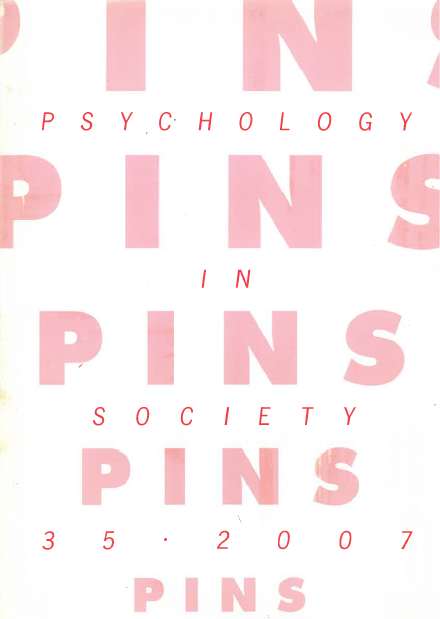EDITORIAL: MASCULINITY IN TRANSITION – 1
DOI:
https://doi.org/10.17159//2309-8708/2007/n35a1Abstract
The special edition on “Masculinity in Transition” engendered considerable interest and the material consolidated in this edition offers some interesting insights on masculinity as understood within a particular historical time and within the particular social and political context of South Africa. As noted in the call for papers, within the social sciences the field of masculinity studies has burgeoned over the last two decades. This has allowed for the deconstruction and elaboration of what constitutes masculinity with the intention of problematising the gender category, as well as opening up the possibility for a less binary conception of what it means to be a person. Many of the contributions speak to this literature in examining masculinity as it is lived out and represented in particular contexts, and the majority of the articles are located within a broadly constructionist/deconstructionist tradition. This interest in interrogating masculinity goes beyond a kind of semantic, symbolic or discursive aim in that in the world in general, and South Africa in particular, gender theorists are perturbed by the apparent intractability of gender relational patterns and the problems associated with this. While feminist theory, policy and activism has succeeded in highlighting the oppression of women and in improving protective legislation and some aspects of women’s lives, sexual violence remains a serious social ill, and domination of women by men continues in numerous spheres from the workplace to the bedroom. Thus, for many, the study of masculinity is intended to shed better light on gendered aspects of identity and how these take relational form.
Downloads
Downloads
Published
How to Cite
Issue
Section
License
This journal is an open access journal, and the authors' and journal should be properly acknowledged, when works are cited.
Authors may use the publishers version for teaching purposes, in books, theses, dissertations, conferences and conference papers.
A copy of the authors’ publishers version may also be hosted on the following websites:
- Non-commercial personal homepage or blog.
- Institutional webpage.
- Authors Institutional Repository.
The following notice should accompany such a posting on the website: “This is an electronic version of an article published in PINS, Volume XXX, number XXX, pages XXX–XXX”, DOI. Authors should also supply a hyperlink to the original paper or indicate where the original paper (http://www.journals.ac.za/index.php/pins) may be found.
Authors publishers version, affiliated with the Stellenbosch University will be automatically deposited in the University’s’ Institutional Repository SUNScholar.
Articles as a whole, may not be re-published with another journal.
The copyright of the article(s) lies with the author(s).
The copyright of the journal lies with PINS-psychology in Society.
The following license applies:
Attribution CC BY-NC-ND 4.0 - https://creativecommons.org/licenses/by-nc-nd/4.0/

